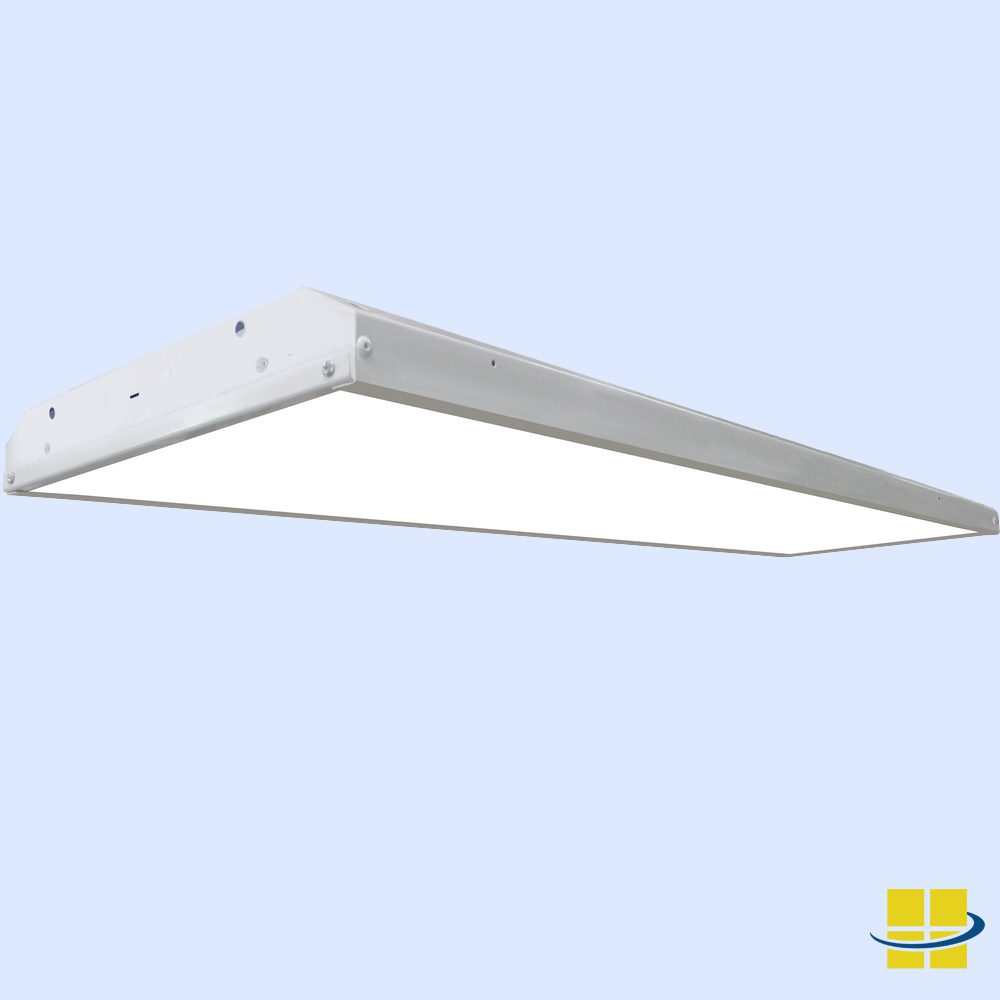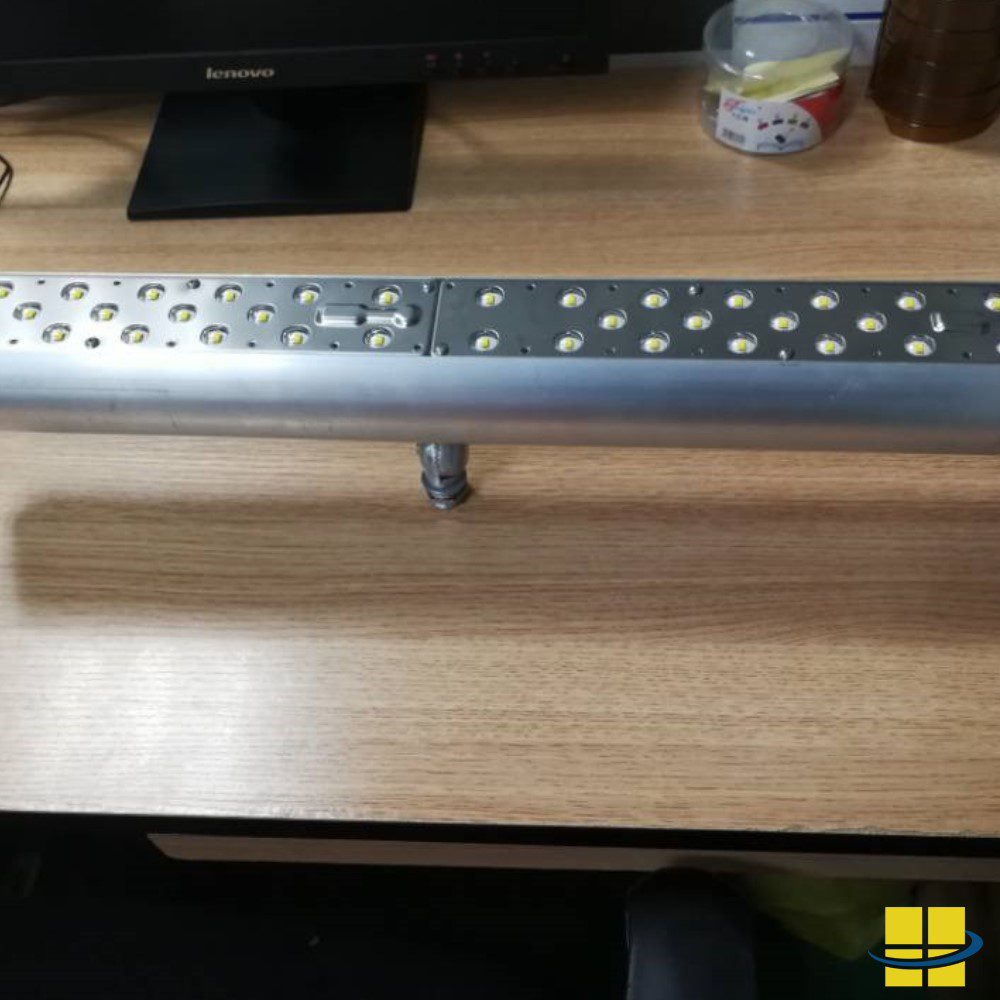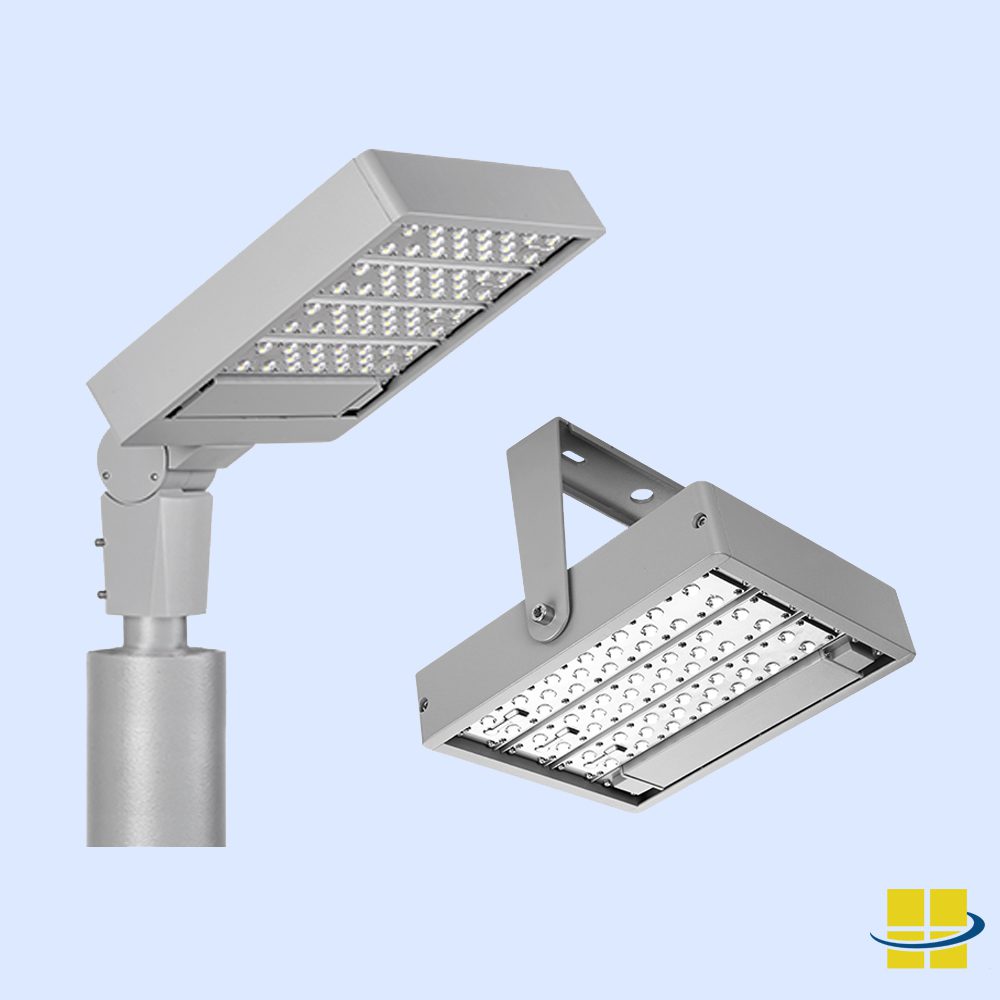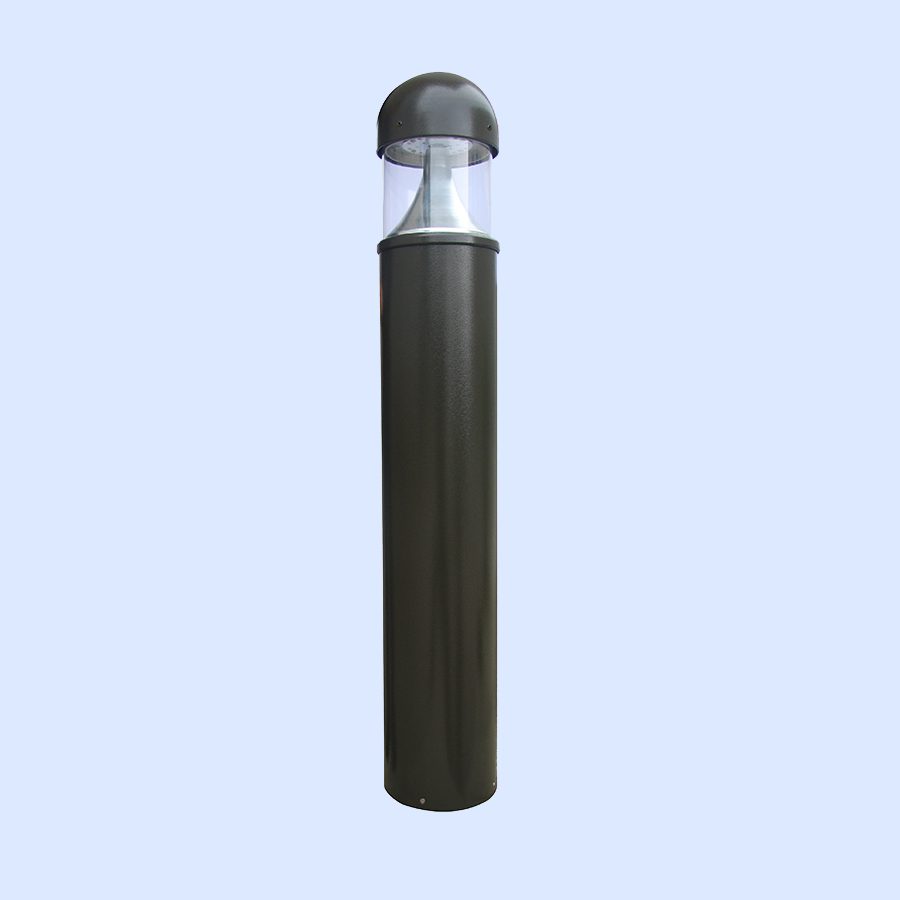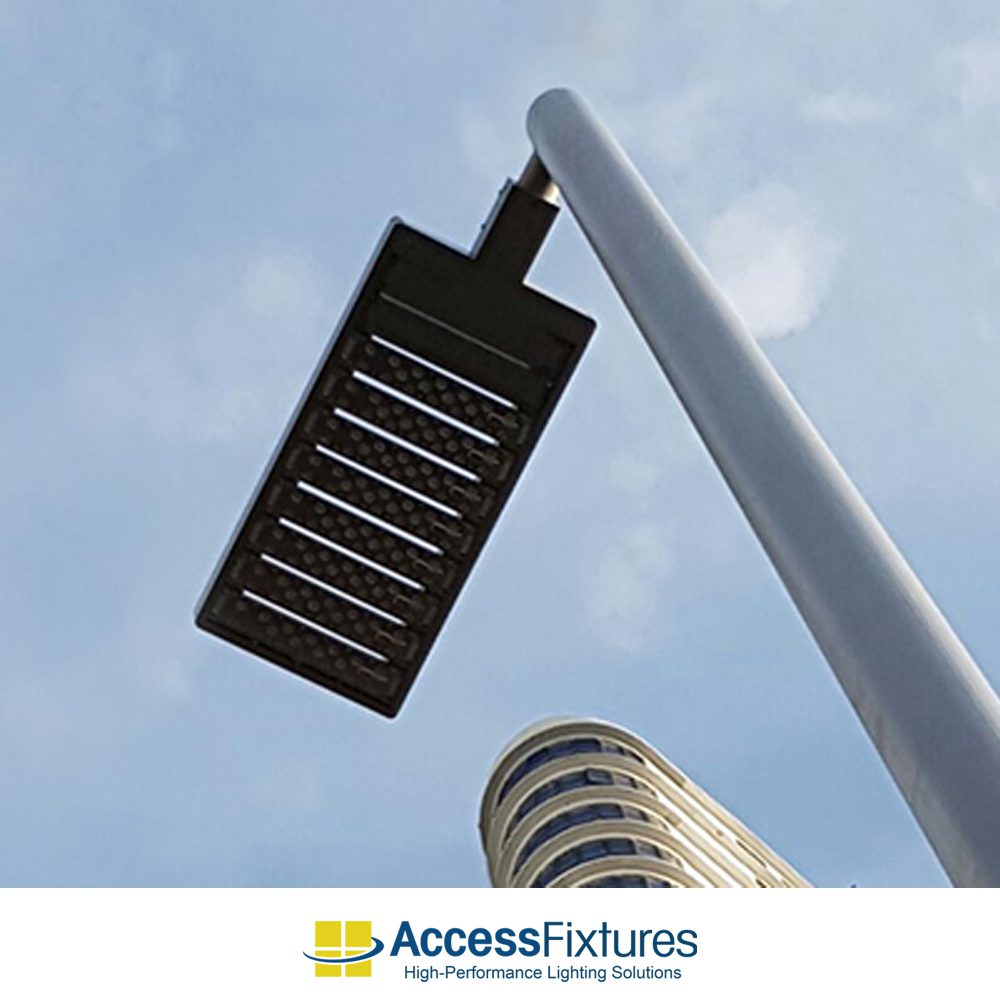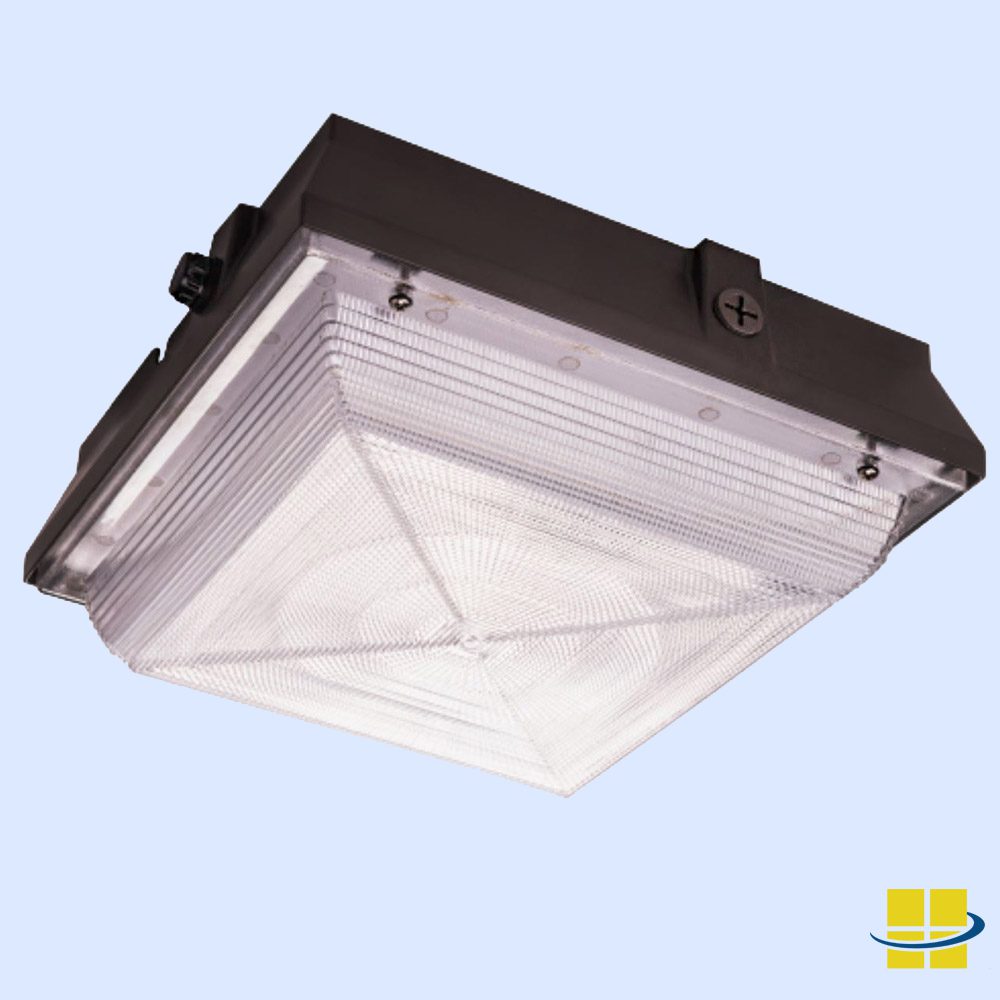It is impossible to deny the effect of LED lighting on the lighting world. From lower initial costs to lower long-term savings, LED light replacement reigns king over the fading dynasties of metal halide (MH) and high-pressure sodium (HPS) lighting. However, many of our customers struggle to find appropriate LED equivalents for their outdated HID fixtures. Because LED technology is so unique, doing a simple lumen-to-lumen swap is not an effective way to upgrade to LED. Anyone making that mistake will end up with far more light than they ever needed and will be needlessly running up their electricity bill.
How is LED so different from HID? How should rated life, visible lumens, and fixture style affect my decision? If I can’t do a lumen-to-lumen or watt-to-watt swap, how do I find out what LED fixture I need? Keep reading for the answers.
LED Light Replacement: Wasted Light
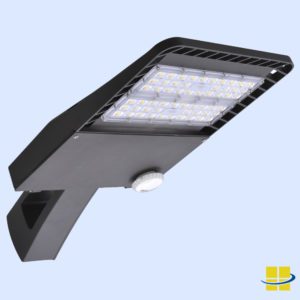
A 100w LED light replacement fixture gives off as many lumens as a 350w HID unit while wasting less wattage and fewer lumens. Pictured here is the CARA 100w LED Flood Light.
HPS and MH technologies emit light 360 degrees around the lamps. The big, bulky housings in which these lamps are often enclosed—whether as wall packs, flood lights, or high bays—prevent a lot of the light from ever escaping. Manufacturers combated the trapping of light with reflective shields, but that only marginally improved output.
LEDs, however, are directional, meaning they send light straight out where they are pointed. This means a much higher percentage of light makes it where you need it (and you aren’t spending money on light you can’t actually use). Because of this massive increase in efficiency, one “LED lumen” could equal up to four “HPS lumens.” This also fluctuates with Kelvin temperature, as higher Kelvin temperatures emit more visible lumens (see graph).
LED Light Replacement: Initial Lumens and Mean Lumens
Other big factors to consider are rated life and the difference between initial lumens and mean lumens. Initial lumens are the amount of lumens emitted by a light source upon first ignition. This is often the most impressive metric for lumen output and is what most manufacturers will publish on specification sheets and product pages. Mean lumens, however, considers lumen depreciation, or, how much a light source will fade over time. HPS and MH fixtures have drastically lower mean lumens than initial lumens because they suffer from severe lumen depreciation. LEDs operate much more efficiently, so their mean lumens—while lower—isn’t as far off.
LED Light Replacement: Rated Life
Rated life is how long a fixture is assumed to last before needing to be replaced. It is often measured in terms of L70 rating, which is the number of operating hours at which a fixture will emit 70% of its initial lumens. It is at this point that many people decide to replace fixtures. For this reason, L70 lifetime has long been the de facto standard for rated life. HPS and MH lamps tend to have L70 lifetimes between 10,000 and 25,000 hours. LEDs now easily achieve 100,000, 200,000, and 400,000+ hours.
What does this all mean? The listed lumen output for an HID lamp may be impressive on paper, but the reality is that: They will never deliver that many lumens to the ground and the output will drop off quickly and significantly. The lumen output of LEDs is affected by rated life, efficacy lost via glass or reflection, and use, but they do a much better job limiting those affects.
Check out this previous article that explains just how to calculate which LED fixture is best to replace an HID wall pack and you’ll really see just how much of your light is wasted with these older technologies.
Let Access Fixtures Aid You in HID-to-LED Light Replacement
Our lighting specialists are ready, willing, and able to assist you in your conversion from outdated HID technology to the LED lighting. We have numerous LED lighting solutions in stock and a friendly lighting specialist will be happy to help you determine exactly which LED fixture will best replace your HPS or MH unit. Call 800-468-9925 or email [email protected] and speak to a specialist today!

